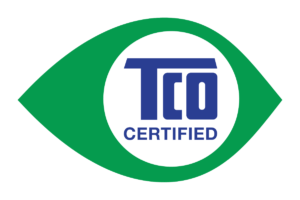Sustainability roundup for ITAM pros
Here is a brief roundup of the most recent sustainability technology developments which you, as ITAM professionals, should be aware of.
At our recent Wisdom EMEA conference, I provided an introduction to the topic of sustainability for ITAM teams. We firmly believe that the focus on Sustainability at C-Suite level over the next few years presents ITAM teams with fresh opportunities to work with senior stakeholders, building recognition for the profession whilst also helping reduce the environmental impact of our ever-increasing technology use.
It’s been a busy few weeks in the world of sustainable technology. New York has passed ground-breaking legislation around right-to-repair, the EU has standardized on a single charger type for consumer devices, and we at The ITAM Review have been exploring new partnerships and opportunities with companies already working in this area.
Digital Fair Repair Act
The Digital Fair Repair Act, which passed the New York Senate in early June, requires manufacturers of certain electronic devices, including mobile phones and laptops, to provide consumers and third-party repairers with tools, parts, and instructions to repair those devices. Furthermore, the repair must return the device to its original functioning state. This is important because, in the case of Apple devices, parts-bundling limits repairability and may result in security features such as fingerprint and face detection no longer being available following a third-party or end-user repair. What this means is that Apple, and other manufacturers with similar restrictions, must provide software tools that enable repairers to re-enable these features following repair.
What this means for ITAM teams
Why should a law being passed by a state government in the US matter to anyone outside that state? Because it lets the repair genie out of the bottle. It’s highly unlikely that equipment manufacturers will restrict access to parts, service manuals, and tools to just the residents of New York state. This bill should increase serviceability of end-user devices worldwide, which is great news for companies and individuals seeking to stop or slow the hardware refresh rollercoaster. Prolonging the life of electronic devices yields significant environmental benefits, particularly once you consider that 80% of the environmental impact of a laptop is tied up in manufacture and transportation.
Elsewhere in the US there are over 20 “right-to-repair” bills progressing through state legislatures (not to mention the EU’s own moves towards right-to-repair). Importantly this is a rare area of cross-party cooperation in US politics, and whilst many of these bills won’t hit the statute books this year there is still a sense of inevitability around state and even federal legislatures to enshrine right-to-repair in consumer rights legislation.
EU Universal Charger Mandate
 Also in June 2022, the EU mandated that all portable electronic devices must use USB-C for connectivity and charging. Charger standardization is something they’ve been working on for over a decade as concerns were raised over the impact of proprietary connectors on sustainability. I certainly remember – and indeed still own – proprietary charges for pre-smartphone devices from Nokia, Samsung, and Sony to name just three. The EU first tried to do something about this in the early 2010s, requiring that wall chargers should output power over USB. This standard worked well, particularly as USB evolved.
Also in June 2022, the EU mandated that all portable electronic devices must use USB-C for connectivity and charging. Charger standardization is something they’ve been working on for over a decade as concerns were raised over the impact of proprietary connectors on sustainability. I certainly remember – and indeed still own – proprietary charges for pre-smartphone devices from Nokia, Samsung, and Sony to name just three. The EU first tried to do something about this in the early 2010s, requiring that wall chargers should output power over USB. This standard worked well, particularly as USB evolved.
Apple got around this legislation by providing USB to first 30-pin and then Lightning connectors, but that loophole has been closed by this latest mandate. If Apple wish to sell devices to EU customers, they must now switch from Lightning to USB-C for all devices. This is a big change for the iPhone and iPad, although Apple has been transitioning to USB-C for its iPads and laptops over the last few years (the recent return of MagSafe charging to its newest laptops throws another spanner in the works) .
As with the New York legislation the feeling is that this will result in a worldwide change, as Apple are unlikely to want to produce EU-specific hardware. So, after 15 years of dealing with often flimsy proprietary cables, Apple device owners should be able to charge almost anywhere. It will be interesting to see if Apple are also required to remove the “Made for iPhone/iPad” MFi restrictions on unauthorized third-party chargers, as this will be required to open up truly universal charger connectivity within the EU.
Secure Digital Infrastructure Alliance initiative
 In May I met with Daan Terpstra, Executive Chairman of the non-profit SDIA (Sustainable Digital Infrastructure Alliance). The SDIA mission is to reduce the environmental impact of digital infrastructure to zero. A bold vision and goal, but a necessary one, when it is estimated that datacenters will consume 13% of total global electricity production by the end of this decade.
In May I met with Daan Terpstra, Executive Chairman of the non-profit SDIA (Sustainable Digital Infrastructure Alliance). The SDIA mission is to reduce the environmental impact of digital infrastructure to zero. A bold vision and goal, but a necessary one, when it is estimated that datacenters will consume 13% of total global electricity production by the end of this decade.
Daan and the SDIA take an interesting perspective on how to do this, and it means that their work is particularly relevant for ITAM teams. Datacenters, Daan argues, exist to run software, and therefore it’s more important to right-size software use than to focus on the power efficiency of datacenter hardware. Clearly, that is still important, as is the requirement for cooling huge datacenters, particularly considering rising global temperatures. The focus on software means that ITAM managers have a considerable role to play by right-sizing SaaS & IaaS consumption and ensuring that unused cloud instances are powered down when not in use.
TCO Certified
Finally, in June, we met with the team at TCO Certified. For anyone working in IT in the mid 90s this name may ring a bell, as their first deliverable was a certification for displays. In 2009 they expanded their focus with the publication of the first global sustainability certification for IT products. Since then, this standard has been expanded and refined and is now on its 9th generation.
 Historically, TCO’s certification has been of greatest importance to purchasing teams, but that scope has broadened in recent years. Recognizing the importance of data-driven decision-making, TCO have developed more than 40 Sustainability Performance Indicators (SPIs). These SPIs have the potential to enrich the data ITAM teams hold about hardware assets, enabling hardware refreshes to be planned efficiently, for example. SPIs also enable stakeholders to compare the sustainability impact of hardware, providing insight into where environmental technical debt might exist and ensure that meaningful and measurable assessments can be made about the relative sustainability credentials of replacement hardware.
Historically, TCO’s certification has been of greatest importance to purchasing teams, but that scope has broadened in recent years. Recognizing the importance of data-driven decision-making, TCO have developed more than 40 Sustainability Performance Indicators (SPIs). These SPIs have the potential to enrich the data ITAM teams hold about hardware assets, enabling hardware refreshes to be planned efficiently, for example. SPIs also enable stakeholders to compare the sustainability impact of hardware, providing insight into where environmental technical debt might exist and ensure that meaningful and measurable assessments can be made about the relative sustainability credentials of replacement hardware.
We see great potential in ITAM teams leveraging the engineering-led, data-rich approach that TCO takes to certifying hardware. As multiple teams – such as Configuration Management and Security – begin to truly understand the importance of enriching discovery data to improve decision making it would be beneficial for our tools to include data from TCO.
Summary
Undoubtedly there is a groundswell building around awareness of Sustainable IT. ITAM teams already have great data, and our lifecycle management processes naturally align with the objectives of a sustainable IT program – for example the hardware reclaim process reduces the requirement for net new purchases. Whilst many organizations aren’t yet ready to fully commit resources to this new approach to technology consumption – now is still a good time for ITAM teams to get up to speed, and we at the ITAM Review will continue to report on this topic to help you do that.
Related articles:
- Tags: sustainability

Missing link at the end of second paragrah.
Change is already on the way – Google has opened its part store in conjunction with Right to Repair advocates iFixit – https://www.ifixit.com/News/61934/pixel-perfect-fix-your-google-pixel-phone-with-genuine-parts-from-ifixit
This is a good look at the reality of Apple’s repair at home strategy:
https://www.theverge.com/2022/5/21/23079058/apple-self-service-iphone-repair-kit-hands-on
Tools weighing 79 pounds and a potential $1,200 charge!
Impressive trolling from Apple. Interesting to see how that will change once the NY legislation is enacted